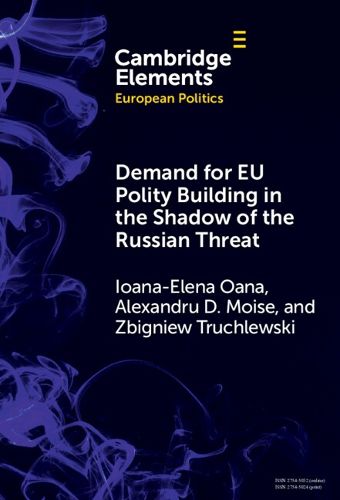Readings Newsletter
Become a Readings Member to make your shopping experience even easier.
Sign in or sign up for free!
You’re not far away from qualifying for FREE standard shipping within Australia
You’ve qualified for FREE standard shipping within Australia
The cart is loading…






The Russian invasion of Ukraine came on the heels of a series of crises that tested the resilience of the EU as a compound polity and arguably reshaped European policymaking at all levels. This Element investigates the effects of the invasion on public support for European polity building across four key policy domains: refugee policy, energy policy, foreign policy, and defence. It shows how support varies across four polity types (centralized, decentralized, pooled, reinsurance) stemming from a distinction between policy and polity support. In terms of the drivers of support and its evolution over time, performance evaluations and ideational factors appear as strong predictors, while perceived threat and economic vulnerability appear to matter less. Results show strong support for further resource pooling at the EU level in all domains that can lead to novel and differentiated forms of polity-building. This title is also available as Open Access on Cambridge Core.
$9.00 standard shipping within Australia
FREE standard shipping within Australia for orders over $100.00
Express & International shipping calculated at checkout
The Russian invasion of Ukraine came on the heels of a series of crises that tested the resilience of the EU as a compound polity and arguably reshaped European policymaking at all levels. This Element investigates the effects of the invasion on public support for European polity building across four key policy domains: refugee policy, energy policy, foreign policy, and defence. It shows how support varies across four polity types (centralized, decentralized, pooled, reinsurance) stemming from a distinction between policy and polity support. In terms of the drivers of support and its evolution over time, performance evaluations and ideational factors appear as strong predictors, while perceived threat and economic vulnerability appear to matter less. Results show strong support for further resource pooling at the EU level in all domains that can lead to novel and differentiated forms of polity-building. This title is also available as Open Access on Cambridge Core.